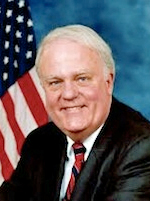 World energy market challenges and federal policies have had some major impacts on the biodiesel industry as 2014 closed out. That’s why this month, as a new year begins, attendees of the annual National Biodiesel Conference and Expo, January 19 – 22 at the Fort Worth Convention Center in Texas, will talk about what the petroleum glut and the delay of federal renewable fuels volume requirements for gas and diesel mean for biodiesel.
World energy market challenges and federal policies have had some major impacts on the biodiesel industry as 2014 closed out. That’s why this month, as a new year begins, attendees of the annual National Biodiesel Conference and Expo, January 19 – 22 at the Fort Worth Convention Center in Texas, will talk about what the petroleum glut and the delay of federal renewable fuels volume requirements for gas and diesel mean for biodiesel.
“With a new Congress convening in Washington, DC, promising significant new legislation aimed at biofuels and the energy sector, it just makes sense that we will be highlighting some of these same issues in the heart of the of domestic oil and gas industry,” said Joe Jobe, CEO of the National Biodiesel Board (NBB).
[E]nergy policy will be front-and-center of the discussions, with state and federal experts on all sides of the issue presenting their views and expectations.
Of particular importance to biofuel producers is the fate of the Renewable Fuel Standard, the federal policy enacted under President George W. Bush with bipartisan support that ensures minimum volumes of biodiesel and other renewables are blended into the fuel supply. The year ended clouded in controversy as the EPA never finalized a rule for 2014’s volume requirements.
“Without a rule in place,” Jobe said, “biodiesel producers are hesitant to invest in their businesses and employees. In some cases, the uncertainty over the EPA potentially scaling back volume requirements has led some producers to shutter plants and lay off staff. The industry needs confidence that the federal government is committed to advanced biofuels and supportive of our growth.”
The 12th annual conference and expo also includes:
An opportunity for attendees and the public to test biodiesel vehicles at a unique ride-and-drive experience;
Automakers and fleets will display their latest cars and trucks at the vehicle showcase;
Texas fleet managers will share their experiences with biodiesel and how it’s making a difference in the Lone Star State;
A session on biodiesel infused heating oil shaking up the industry, and much, much more.
But energy policy will be front-and-center of the discussions, with state and federal experts on all sides of the issue presenting their views and expectations.
More information and registration is available at biodieselconference.org.
![]() Australia-based Algae.Tec will bring its algae-biodiesel technology into China. This story from Proactive Investors says Algae.Tec will issue a $500,000 convertible bond to China Finance Strategies Investment Holdings (CFS), with another $5 million in conditional options to come.
Australia-based Algae.Tec will bring its algae-biodiesel technology into China. This story from Proactive Investors says Algae.Tec will issue a $500,000 convertible bond to China Finance Strategies Investment Holdings (CFS), with another $5 million in conditional options to come.









